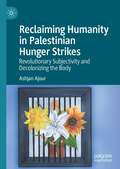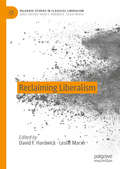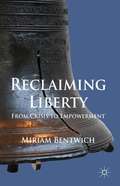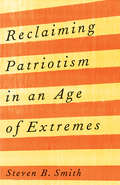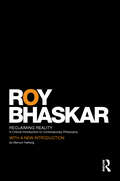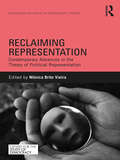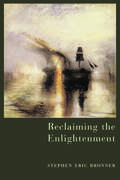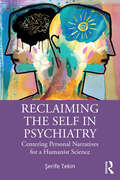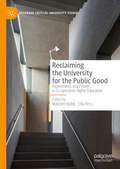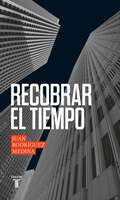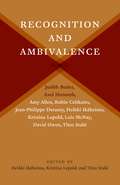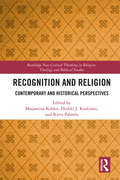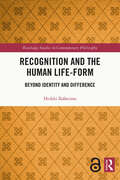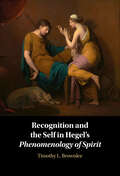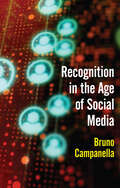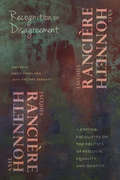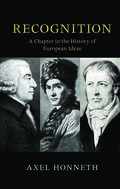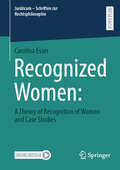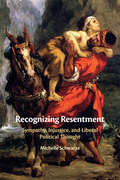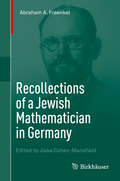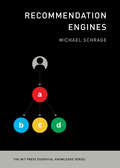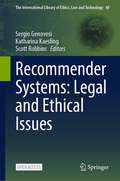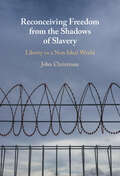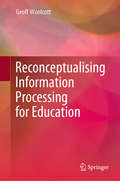- Table View
- List View
Reclaiming Humanity in Palestinian Hunger Strikes: Revolutionary Subjectivity and Decolonizing the Body
by Ashjan AjourRooted in feminist ethnography and decolonial feminist theory, this book explores the subjectivity of Palestinian hunger strikers in Israeli prisons, as shaped by resistance. Ashjan Ajour examines how these prisoners use their bodies in anti-colonial resistance; what determines this mode of radical struggle; the meanings they ascribe to their actions; and how they constitute their subjectivity while undergoing extreme bodily pain and starvation. These hunger strikes, which embody decolonisation and liberation politics, frame the post-Oslo period in the wake of the decline of the national struggle against settler-colonialism and the fragmentation of the Palestinian movement. Providing narrative and analytical insights into embodied resistance and tracing the formation of revolutionary subjectivity, the book sheds light on the participants’ views of the hunger strike, as they move beyond customary understandings of the political into the realm of the ‘spiritualisation’ of struggle. Drawing on Foucault’s conception of the technologies of the self, Fanon’s writings on anti-colonial violence, and Badiou’s militant philosophy, Ajour problematises these concepts from the vantage point of the Palestinian hunger strike.
Reclaiming Liberalism (Palgrave Studies in Classical Liberalism)
by Leslie Marsh David F. Hardwick“David Hardwick and Leslie Marsh have assembled a contentious collection of independent thinkers on liberalism’s identity and prospects. Should liberalism be democratic, classical, ordo, legalistic, culture-based, market-based, or what? The international crew of authors—from Australia, Canada, China and the USA—draw upon the insights of key historic figures from Locke to Montesquieu to Burke to Dewey to Hayek to Rawls (and of course others, given liberalism’s rich history), and they leave us with a set of liberalisms both in collision and in overlapping agreement. This book is stimulating reading for those engaged with next-generation liberal thought.”—Stephen R. C. Hicks, Professor of Philosophy at Rockford University.This collection redresses the conceptual hubris and illiteracy that has come to obscure the central presuppositions of classical liberalism - that is, the wresting of epistemic independence from overwhelming concentrations of power, monopolies and capricious zealotries, whether they be statist, religious or corporate in character.
Reclaiming Liberty
by Miriam BentwichBased on a reconstruction of earlier liberal conceptions of liberty (the political theories of John Locke & J. S. Mill), this book stresses the empowering nature of liberal freedom and explains why such a concept of liberty better addresses two key contemporary challenges in liberal theory and praxis: wealth redistribution and multiculturalism.
Reclaiming Patriotism in an Age of Extremes
by Steven B. SmithA rediscovery of patriotism as a virtue in line with the core values of democracy in an extremist age The concept of patriotism has fallen on hard times. What was once a value that united Americans has become so politicized by both the left and the right that it threatens to rip apart the social fabric. On the right, patriotism has become synonymous with nationalism and an &“us versus them&” worldview, while on the left it is seen as an impediment to acknowledging important ethnic, religious, or racial identities and a threat to cosmopolitan globalism. Steven B. Smith reclaims patriotism from these extremist positions and advocates for a patriotism that is broad enough to balance loyalty to country against other loyalties. Describing how it is a matter of both the head and the heart, Smith shows how patriotism can bring the country together around the highest ideals of equality and is a central and ennobling disposition that democratic societies cannot afford to do without.
Reclaiming Reality: A Critical Introduction to Contemporary Philosophy (Classical Texts in Critical Realism (Routledge Critical Realism))
by Roy BhaskarOriginally published in 1989, Reclaiming Reality still provides the most accessible introduction to the increasingly influential multi-disciplinary and international body of thought, known as critical realism. It is designed to "underlabour" both for the sciences, especially the human sciences, and for the projects of human emancipation which such sciences may come to inform; and provides an enlightening intervention in current debates about realism and relativism, positivism and poststucturalism, modernism and postmodernism, etc. Elaborating his critical realist perspective on society, nature, science and philosophy itself, Roy Bhaskar shows how this perspective can be used to undermine currently fashionable ideologies of the Right, and at the same time, to clear the ground for a reinvigorated Left. Reclaiming Reality contains powerful critiques of some of the most important schools of thought and thinkers of recent years—from Bachelard and Feyerabend to Rorty and Habermas; and it advances novel and convincing resolutions of many traditional philosophical problems. Now with a new introduction from Mervyn Hartwig, this book continues to provide a straightforward and stimulating introduction to current debates in philosophy and social theory for the interested lay reader and student alike. Reclaiming Reality will be of particular value not only for critical realists but for all those concerned with the revitalization of the socialist emancipatory project and the renaissance of the Marxist theoretical tradition. Roy Bhaskar is the originator of the philosophy of critical realism, and the author of many acclaimed and influential works including A Realist Theory of Science, The Possibility of Naturalism, Scientific Realism and Human Emancipation and Dialectic: The Pulse of Freedom. He is an editor of the recently published Critical Realism: Essential Readings and is currently chair of the Centre for Critical Realism.
Reclaiming Representation: Contemporary Advances in the Theory of Political Representation (Routledge Innovations in Political Theory)
by Monica Brito VieiraRepresentation is integral to the functioning and legitimacy of modern government. Yet political theorists have often been reluctant to engage directly with questions of representation, and empirical political scientists have closed down such questions by making representation synonymous with congruence. Conceptually unproblematic and normatively inert for some, representation has been deemed impossible to pin down analytically and to defend normatively by others. But this is changing. Political theorists are now turning to political representation as a subject worthy of theoretical investigation in its own right. In their effort to rework the theory of political representation, they are also hoping to impact how representation is assessed and studied empirically. This volume gathers together chapters by key contributors to what amounts to a "representative turn" in political theory. Their approaches and emphases are diverse, but taken together they represent a compelling and original attempt at re-conceptualizing political representation and critically assessing the main theoretical and political implications following from this, namely for how we conceive and assess representative democracy. Each contributor is invited to look back and ahead on the transformations to democratic self-government introduced by the theory and practice of political representation. Representation and democracy: outright conflict, uneasy cohabitation, or reciprocal constitutiveness? For those who think democracy would be better without representation, this volume is a must-read: it will question their assumptions, while also exploring some of the reasons for their discomfort. Reclaiming Representation is essential reading for scholars and graduate researchers committed to staying on top of new developments in the field.
Reclaiming the Enlightenment: Toward a Politics of Radical Engagement
by Stephen Eric BronnerSince the mid-twentieth century, intellectuals have attacked the Enlightenment for its imperialism, eurocentrism, and scientism and for the sexism and racism of some of its major representatives. Eager to reclaim the Enlightenment from purely philosophical and cultural interpretations, Bronner shows that the Enlightenment's notion of political engagement keeps democracy fresh and alive by providing a practical foundation for fostering institutional accountability, opposing infringements on individual rights, instilling an enduring commitment to social reform, and building a cosmopolitan sensibility. This forceful and timely reinterpretation of the Enlightenment and its powerful influence on contemporary political life is a resounding wake-up call to critics on both the left and the right.
Reclaiming the Self in Psychiatry: Centering Personal Narratives for a Humanist Science
by Şerife TekinReclaiming the Self in Psychiatry: Centering Personal Narratives for Humanist Science diagnoses the fundamental problem in contemporary scientific psychiatry to be a lack of a sophisticated and nuanced engagement with the self and proposes a solution—the Multitudinous Self Model (MuSe).MuSe fulfils psychiatry’s twin commitments to patients’ flourishing and scientific objectivity. Marshalling the conceptual and empirical resources from testimonies from individuals diagnosed with mental disorders, substantive research in cognitive science, and empirically informed philosophy, MuSe provides clinicians, scientists, and patients pathways to respond to mental distresses and disorders. This framework boosts psychiatry’s relationship to science by facilitating expansive notions of expertise and objectivity in which some patients are recognized as “experience-based experts” whose contributions to psychiatric knowledge are indispensable. Şerife Tekin draws the contours of a future for psychiatry that is grounded in philosophy, medical humanities, and social sciences as much as physiology and neuroscience.This book is an ideal read for professional psychiatrists and philosophers of psychiatry who are interested in the philosophy of mental health.
Reclaiming the University for the Public Good: Experiments and Futures in Co-operative Higher Education (Palgrave Critical University Studies)
by Malcolm Noble Cilla RossThis book asks how we can reclaim the university for the public good. The editors and contributors argue that the sector is in crisis, accelerated by the passing of the UK Higher Education Research Act in 2017 and made visible during the University and College Union strikes in April 2018. In response to this, there are widespread demands to reclaim the university and protect education as a public good, using co-operative structures. Taking an interdisciplinary and social justice perspective, the editors and contributors offer concrete examples of alternative higher education: in doing so, analysing how the future of the university can be recovered. This intersectional volume discusses a broad range of approaches to higher education while disseminating new ideas. It will be of interest and value to those disenchanted with the current state of higher education in the UK and beyond, as well as activists and policy makers.
Recobrar el tiempo: Notas y lecturas contra el trabajo
by Juan Rodriguez MedinaBreve ensayo sobre uno de los asuntos filosóficos más estimulantes en la actualidad. ¿Por qué tenemos que trabajar? ¿Por qué tiene que ser todos los días? Se afirma que el sueldo es una forma de dominación. ¿Debemos resignarnos a ello? ¿Es un destino? No, ojalá que no, dice el autor de este ensayo, que recurre a la filosofía, la literatura, la historia, la música y el cine, y claro, a la política, para escribir contra el trabajo, esa «esclavitud moderna» como la describe a lo largo de su indagación. En este notable ensayo, Juan Rodríguez afirma que somos tiempo, y que el capitalismo, digital o no, dispone de este, se lo apropia hasta la muerte. Hoy, cuando de nuevo se habla de automatización o renta universal, tal vez sea momento de volver a pensar el fin del trabajo.
Recognition and Ambivalence (New Directions in Critical Theory #77)
by David Owen Judith Butler Amy Allen Axel Honneth Robin Celikates Jean-Philippe Deranty Lois McNayRecognition is one of the most debated concepts in contemporary social and political thought. Its proponents, such as Axel Honneth, hold that to be recognized by others is a basic human need that is central to forming an identity, and the denial of recognition deprives individuals and communities of something essential for their flourishing. Yet critics including Judith Butler have questioned whether recognition is implicated in structures of domination, arguing that the desire to be recognized can motivative individuals to accept their assigned place in the social order by conforming to oppressive norms or obeying repressive institutions. Is there a way to break this impasse?Recognition and Ambivalence brings together leading scholars in social and political philosophy to develop new perspectives on recognition and its role in social life. It begins with a debate between Honneth and Butler, the first sustained engagement between these two major thinkers on this subject. Contributions from both proponents and critics of theories of recognition further reflect upon and clarify the problems and challenges involved in theorizing the concept and its normative desirability. Together, they explore different routes toward a critical theory of recognition, departing from wholly positive or negative views to ask whether it is an essentially ambivalent phenomenon. Featuring original, systematic work in the philosophy of recognition, this book also provides a useful orientation to the key debates on this important topic.
Recognition and Religion: Contemporary and Historical Perspectives (Routledge New Critical Thinking in Religion, Theology and Biblical Studies)
by Maijastina Kahlos Heikki J. Koskinen Ritva PalménThis book focuses on recognition and its relation to religion and theology, in both systematic and historical dimensions. While existing research literature on recognition and contemporary recognition theory has been gradually growing since the early 1990s, certain gaps remain in the field covered so far. One of these is the multifaceted interaction between the phenomena of recognition and religion. Since recognition applies to persons, institutions, and normative entities like systems of beliefs, it also provides a very useful analytic and interpretative tool for studying religion. Divided into five sections, with chapters written by established scholars in their respective fields, the book explores the roots, history, and limits of recognition theory in the context of religious belief. Exploring early Christian and medieval sources on recognition and religion, it also offers contemporary applications of this underexplored combination. This is a timely book, as debates over religious identities, problematic forms of extremism and societal issues related with multiculturalism continue to dominate the media and politics. It will, therefore, be of great interest to scholars of recognition studies as well as religious studies, theology, philosophy, and religious and intellectual history.
Recognition and the Human Life-Form: Beyond Identity and Difference (Routledge Studies in Contemporary Philosophy)
by Heikki IkäheimoWhat is recognition and why is it so important? This book develops a synoptic conception of the significance of recognition in its many forms for human persons by means of a rational reconstruction and internal critique of classical and contemporary accounts. The book begins with a clarification of several fundamental questions concerning recognition. It then reconstructs the core ideas of Fichte, Hegel, Taylor, Fraser, and Honneth and utilizes the insights and conceptual tools developed across these chapters for developing a case for the universal importance of recognition for humans. It argues in favour of a universalist anthropological position, unusual in the literature on recognition, that aims to construe a philosophically sound basis for a discourse of common humanity, or of a shared human life-form for which moral relations of recognition are essential. This synthetic conception of the importance of recognition provides tools for articulating deep intuitions shared across cultures about what makes human life and forms of human co-existence better or worse, and thus tools for mutual understanding about the deepest shared concerns of humanity, or of what makes us all human persons despite our differences. Recognition and the Human Life-Form will appeal to readers interested in philosophical anthropology, social and political philosophy, critical theory, and the history of philosophy. It also provides ideas and conceptual tools for fields such as anthropology, education, disability studies, international relations, law, politics, religious studies, sociology, and social research.
Recognition and the Self in Hegel's Phenomenology of Spirit
by Timothy L. BrownleeHegel's Phenomenology of Spirit is famed for its account of the problem of recognition. Yet while readers agree about the importance of its influential accounts of the struggle to the death and the master/slave relation in developing that problem, there is no consensus regarding what sorts of relations among subjects would count as successful forms of recognition. Timothy Brownlee articulates the essential connections between Hegel's concepts of recognition and the self, and presents a novel interpretation of the Phenomenology that traces the emergence of actual relations of reciprocal recognition through the work as a whole. He focuses on the distinctive social constitution conception of the self that Hegel develops in his account of 'spirit,' and demonstrates that the primary significance of recognition lies in its contribution to self-knowledge. His book will be valuable for scholars and students interested in Hegel, German Idealism, and philosophical conceptions of recognition.
Recognition in the Age of Social Media: Race, Gender, And Violence
by Bruno CampanellaThe desire to be recognized is a basic human trait. In contemporary society, social media platforms play a key role in defining how processes of recognition take shape. To post, to like, or to comment have become daily practices of expressing individual recognition. On the one hand, social media platforms make it easier for individuals to be visible and to be recognized; on the other hand, they control the structure of these dynamics. This timely and original book reflects on processes of recognition on social media platforms. Revisiting traditional discussions on recognition theory, Bruno Campanella investigates how the field of media and communication has used the concept and poses new questions raised by the omnipresence of social media. He argues that existing work does not fully explore the impact of platforms on contemporary processes of recognition. Individuals must learn new skills to make themselves visible online, but how to achieve this changes as a consequence of the role played by platforms: what is seen depends on decisions taken by their algorithms, which impacts how individuals and social groups are valued in society. Recognition in the Age of Social Media is a key contribution to the field, and a must-read for students and scholars of media and communication, sociology, and politics.
Recognition or Disagreement: A Critical Encounter on the Politics of Freedom, Equality, and Identity (New Directions in Critical Theory #30)
by Axel Honneth Jacques RancièreAxel Honneth is best known for his critique of modern society centered on a concept of recognition. Jacques Rancière has advanced an influential theory of modern politics based on disagreement. Underpinning their thought is a concern for the logics of exclusion and domination that structure contemporary societies. In a rare dialogue, these two philosophers explore the affinities and tensions between their perspectives to provoke new ideas for social and political change.Honneth sees modern society as a field in which the logic of recognition provides individuals with increasing possibilities for freedom and is a constant catalyst for transformation. Rancière sees the social as a policing order and the political as a force that must radically assert equality. Honneth claims Rancière's conception of the political lies outside of actual historical societies and involves a problematic desire for egalitarianism. Rancière argues that Honneth's theory of recognition relies on an overly substantial conception of identity and subjectivity. While impassioned, their exchange seeks to advance critical theory's political project by reconciling the rift between German and French post-Marxist traditions and proposing new frameworks for justice.
Recognition: A Chapter in the History of European Ideas (The Seeley Lectures)
by Axel HonnethThe idea that we are mutually dependent on the recognition of our peers is at least as old as modernity. Across Europe, this idea has been understood in different ways from the very beginning, according to each country's different cultural and political conditions. This stimulating study explores the complex history and multiple associations of the idea of 'Recognition' in Britain, France and Germany. Demonstrating the role of 'recognition' in the production of important political ideas, Axel Honneth explores how our dependence on the recognition of others is sometimes viewed as the source of all modern, egalitarian morality, sometimes as a means for fostering socially beneficial behavior, and sometimes as a threat to 'true' individuality. By exploring this fundamental concept in our modern political and social self-understanding, Honneth thus offers an alternative view of the philosophical discourse of modernity.
Recognized Women: a theory of recognition of women and case studies (Juridicum - Schriften zur Rechtsphilosophie)
by Carolina EsserAxel Honneth’s theory of recognition comes from a theoretical paradigm attached to Western deliberative democracy. Honneth does not interpret recognition from the perspective of gender equality and how a woman may be recognized in non democratic and non Western societies. If one interprets the theory of recognition with a focus on the situation of women, it is possible to identify that legal recognition plays a fundamental role. It is relevant, then, to propose forms of struggling for the recognition of these women. It is adopted the methodology of Critical Theory and recognition is illustrated from the perspectives of case studies, for instance, regarding women in China and Morocco. In these countries, there are different forms of disrespect. Nevertheless, despite restrictions imposed by government and culture, both countries still have forms of struggling for recognition that should be perceived. Several forms of struggling for recognition, to turn recognition into a universal institute, which can be applied in different contexts. There are always forms of struggling for better conditions of women’s recognition in every community, through the support of law.
Recognizing Resentment: Sympathy, Injustice, And Liberal Political Thought
by Michelle SchwarzeWe typically think of resentment as an unjustifiable and volatile emotion, responsible for fostering the worst political divisions. Recognizing Resentment argues instead that sympathy with the resentment of victims of injustice is vital for upholding justice in liberal societies, as it entails recognition of the equal moral and political status of those with whom we sympathize. Sympathizing with the resentment of others makes us alive to injustice in a way no rational recognition of wrongs alone can, and it motivates us to demand justice on others' behalves. This book rehabilitates arguments for the moral and political worth of resentment developed by three influential thinkers in the early liberal tradition - Joseph Butler, David Hume, and Adam Smith - and uses these to advance a theory of spectatorial resentment, discussing why we should be indignant about the injustice others face, and how such a shared sentiment can actually bring liberal citizens closer together.
Recognizing Wrongs
by John C. Goldberg Benjamin C. ZipurskyMuch bemoaned and widely misunderstood, tort law provides an essential vehicle for injured parties to seek redress from wrongdoers and hold them accountable. John Goldberg and Benjamin Zipursky defend tort law against its critics and lay out comprehensively their increasingly influential “civil recourse” conception of tort.
Recollections of a Jewish Mathematician in Germany
by Abraham A. FraenkelJiska Cohen-MansfieldAbraham A. Fraenkel was a world-renowned mathematician in pre-Second World War Germany, whose work on set theory was fundamental to the development of modern mathematics. A friend of Albert Einstein, he knew many of the era's acclaimed mathematicians personally. He moved to Israel (then Palestine under the British Mandate) in the early 1930s. In his autobiography Fraenkel describes his early years growing up as an Orthodox Jew in Germany and his development as a mathematician at the beginning of the twentieth century. This memoir, originally written in German in the 1960s, has now been translated into English, with an additional chapter covering the period from 1933 until his death in 1965 written by the editor, Jiska Cohen-Mansfield. Fraenkel describes the world of mathematics in Germany in the first half of the twentieth century, its origins and development, the systems influencing it, and its demise. He also paints a unique picture of the complex struggles within the world of Orthodox Jewry in Germany. In his personal life, Fraenkel merged these two worlds during periods of turmoil including the two world wars and the establishment of the state of Israel. Including a new foreword by Menachem Magidor Foreword to the 1967 German edition by Yehoshua Bar-Hillel
Recommendation Engines (The MIT Press Essential Knowledge series)
by Michael SchrageHow companies like Amazon, Netflix, and Spotify know what "you might also like": the history, technology, business, and societal impact of online recommendation engines.Increasingly, our technologies are giving us better, faster, smarter, and more personal advice than our own families and best friends. Amazon already knows what kind of books and household goods you like and is more than eager to recommend more; YouTube and TikTok always have another video lined up to show you; Netflix has crunched the numbers of your viewing habits to suggest whole genres that you would enjoy. In this volume in the MIT Press's Essential Knowledge series, innovation expert Michael Schrage explains the origins, technologies, business applications, and increasing societal impact of recommendation engines, the systems that allow companies worldwide to know what products, services, and experiences "you might also like."
Recommender Systems: Legal and Ethical Issues (The International Library of Ethics, Law and Technology #40)
by Scott Robbins Katharina Kaesling Sergio GenovesiThis open access contributed volume examines the ethical and legal foundations of (future) policies on recommender systems and offers a transdisciplinary approach to tackle important issues related to their development, use and integration into online eco-systems. This volume scrutinizes the values driving automated recommendations - what is important for an individual receiving the recommendation, the company on which that platform was received, and society at large might diverge. The volume addresses concerns about manipulation of individuals and risks for personal autonomy. From a legal perspective, the volume offers a much-needed evaluation of regulatory needs and lawmakers’ answers in various legal disciplines. The focus is on European Union measures of platform regulation, consumer protection and anti-discrimination law. The volume will be of particular interest to the community of legal scholars dealing with platform regulation and algorithmic decision making. By including specific use cases, the volume also exposes pitfalls associated with current models of regulation. Beyond the juxtaposition of purely ethical and legal perspectives, the volume contains truly interdisciplinary work on various aspects of recommender systems.
Reconceiving Freedom from the Shadows of Slavery: Liberty in a Nonideal World
by John ChristmanIn a departure from standard approaches to the concept of liberty, in this book John Christman locates and defends the concept of freedom as a fundamental social value that arose out of fights against slavery and oppression. Seen in this light, liberty must be understood as requiring more than mere non-interference or non-domination – it requires the capacity for self-government and the capabilities needed to pursue valued activities, practices, and ways of life. Christman analyses the emergence of freedom as a concept through nineteenth- and twentieth-century struggles against slavery and other oppressive social forms, and argues that a specifically positive conception best reflects its origins and is philosophically defensible in its own right. What results is a model of freedom that captures its fundamental value both as central to the theoretical architecture of constitutional democracies and as an aspiration for those striving for liberation.
Reconceptualising Information Processing for Education
by Geoff WoolcottThis book presents a novel conceptualisation of universal information processing systems based on studies of environmental interaction in both biological and non-biological systems. This conceptualisation is used to demonstrate how a single overarching framework can be applied to the investigation of human learning and memory by considering matter and energy pathways and their connections. In taking a stance based on everyday interactions, as well as on scientific practices, the conceptualisation is used to consider educational theories and practices, exemplified by the widely cited cognitive load theory. In linking these theories and practices more closely to scientific thinking, the book embraces an holistic approach to informational interactions, not limited to conceptualisations of pattern, signal or meaning. The book offers educational researchers and educators an opportunity to re-think their approach to instruction – to take all facets of student learning environments into account in increasing human knowledge, skills and experiences across society.
